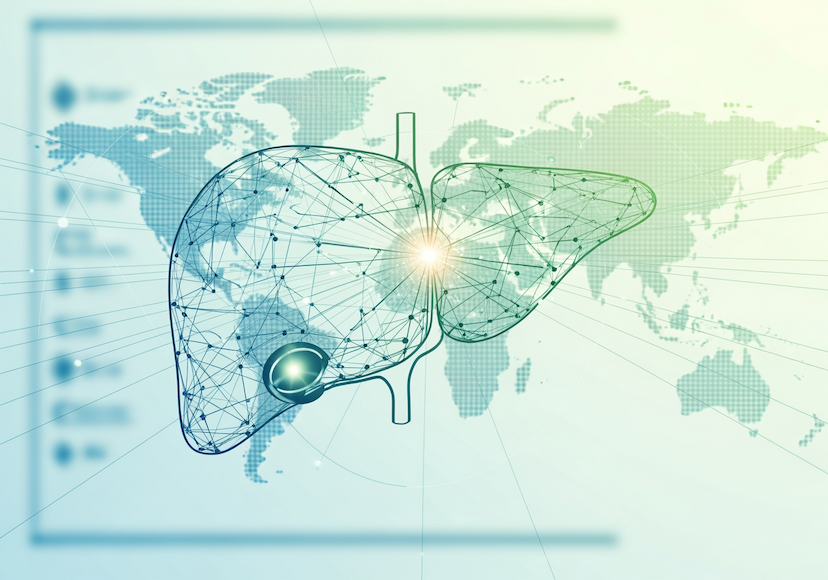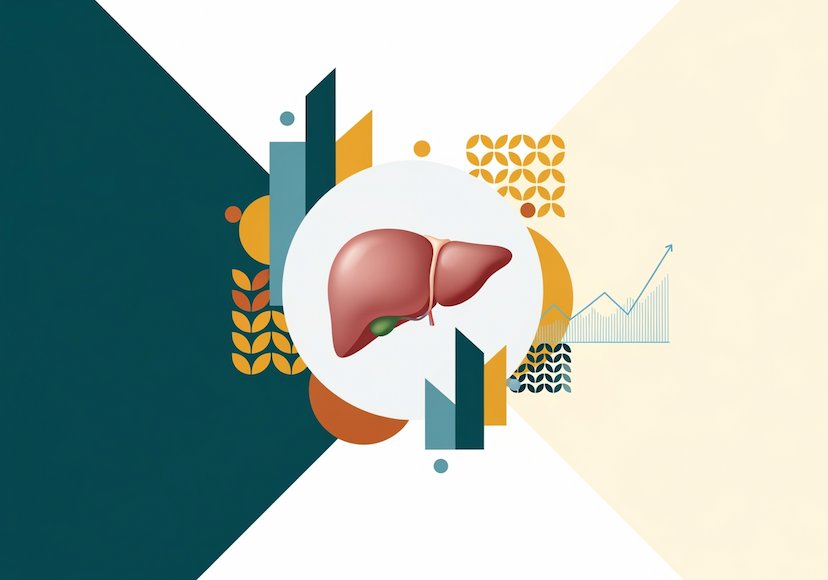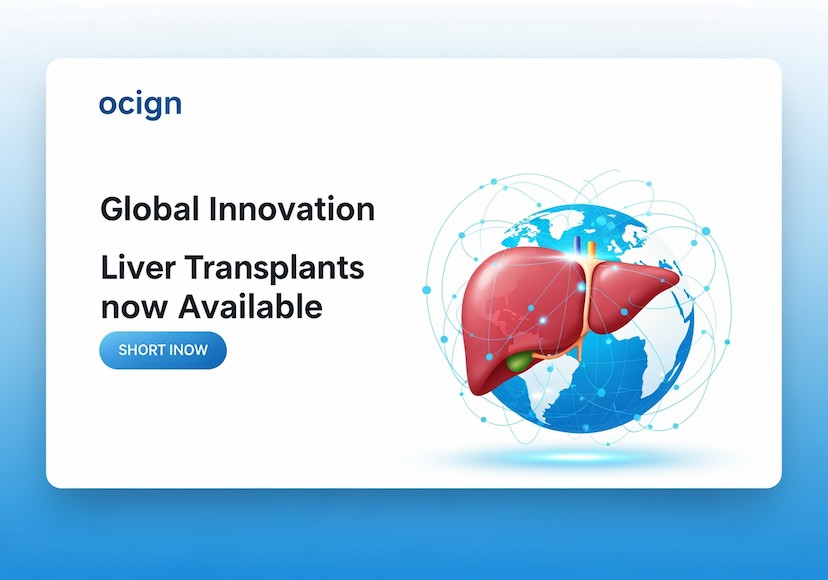
Success Rates of Liver Transplant in India Compared to Other Countries
15 Nov, 2025
 Healthtrip
Healthtrip- Where are Liver Transplants Commonly Performed? Global Hotspots & India's Role
- Success Rates: A Comparative Analysis of Liver Transplant Outcomes
- Factors Influencing Liver Transplant Success: A Deep Dive
- Cost Analysis: Liver Transplant in India vs. Other Countries
- Patient Stories & Experiences: Real-Life Perspectives
- Choosing the Best Hospital: Key Considerations < li>Conclusion
Understanding Liver Transplant Success Rates
When we talk about liver transplant success, it's crucial to understand what "success" really means. It's not just about surviving the surgery itself, although that's certainly a critical first step. Success is often measured by patient survival rates at specific intervals post-transplant, typically one year, five years, and ten years. These survival rates reflect the percentage of patients who are still alive and functioning well at these points after their transplant. But it's more than just survival; it's also about the quality of life post-transplant. Are patients able to return to work? Can they enjoy their hobbies and spend quality time with loved ones? Are they free from debilitating complications? These factors all contribute to a holistic measure of success. Also, success can depend on other factors like the recipient’s overall health, the donor liver quality, and the expertise of the transplant team involved. Understanding these nuances is essential when comparing outcomes across different medical centers and countries. At Healthtrip, we understand the importance of considering these comprehensive measures when connecting you with the best healthcare options.
Most popular procedures in India
Liver Transplant Success Rates in India
India has rapidly become a leading destination for liver transplants, thanks to advancements in medical technology and the expertise of highly skilled surgeons. Hospitals like Fortis Memorial Research Institute, Gurgaon, and Max Healthcare Saket, have established dedicated liver transplant programs with impressive success rates. Generally, Indian transplant centers report one-year survival rates ranging from 85% to 90%, which are comparable to international standards. Five-year survival rates typically fall between 70% and 80%. These figures reflect the culmination of meticulous pre-transplant evaluations, advanced surgical techniques, and comprehensive post-operative care. However, it is important to note that success rates can vary depending on the specific hospital, the patient's condition, and other factors. Moreover, the increasing availability of living donor liver transplants in India has significantly contributed to improved outcomes, as it reduces waiting times and allows for better matching of donors and recipients. Dr. Vivek Vij at Fortis Hospital, Noida is a renowned name in the field of liver transplantation. Healthtrip recognizes the importance of connecting patients with reputable medical facilities and experienced specialists to ensure the best possible results.
Liver Transplant Success Rates in Other Countries
Globally, liver transplant success rates vary depending on the country and the specific medical center. In the United States, for example, the one-year survival rate is around 90%, while the five-year survival rate is approximately 75%. European countries like Spain and Germany also boast high success rates, with one-year survival rates often exceeding 90%. Jiménez Díaz Foundation University Hospital in Spain and Helios Klinikum Erfurt in Germany are known for their excellent liver transplant programs. Singapore, particularly Mount Elizabeth Hospital and Singapore General Hospital, has also established itself as a leading transplant center in Asia, with survival rates comparable to those in the West. Factors contributing to these high success rates include well-established organ donation programs, advanced medical technology, and experienced transplant teams. However, access to transplantation and waiting times can vary significantly between countries, which can impact overall outcomes. Understanding these global variations is crucial when considering liver transplantation as a treatment option. Through Healthtrip, you can explore a range of international options and receive personalized guidance to make the best choice for your specific needs.
Wellness Treatments
Give yourself the time to relax
Lowest Prices Guaranteed!

Lowest Prices Guaranteed!
Factors Influencing Liver Transplant Success Rates
Numerous factors play a critical role in determining the success of a liver transplant. Patient-related factors, such as the severity of liver disease, overall health, and adherence to post-transplant medications, are paramount. The donor liver quality, including its age, condition, and compatibility with the recipient, also significantly impacts outcomes. Surgical expertise and the experience of the transplant team are crucial for minimizing complications during and after surgery. Advanced medical technology, such as minimally invasive surgical techniques and sophisticated monitoring systems, can improve precision and reduce recovery times. Post-operative care, including immunosuppression management and infection control, is essential for preventing rejection and other complications. In countries like India, socioeconomic factors, such as access to healthcare and affordability of medications, can also influence long-term outcomes. Addressing these multifaceted factors through comprehensive pre-transplant evaluations, skilled surgical teams, and robust post-operative support is essential for maximizing liver transplant success rates. Healthtrip understands the complexities involved and works to connect you with medical centers that prioritize these crucial aspects of care.
Comparing India to Other Countries: Key Differences and Considerations
When comparing liver transplant success rates between India and other countries, it's important to consider both the similarities and key differences. India has made remarkable progress in liver transplantation, with many centers achieving outcomes comparable to those in the West. However, there are some notable distinctions. One key difference lies in the availability of deceased donor organs. While deceased donation rates are relatively high in some Western countries, they remain lower in India, leading to a greater reliance on living donor transplants. This can impact waiting times and donor-recipient matching. Additionally, healthcare infrastructure and resources may vary across different regions in India, potentially affecting access to specialized care. Cost is another significant factor, with liver transplants generally being more affordable in India compared to many Western countries. However, it's crucial to consider the overall quality of care and long-term follow-up when making a decision. Healthtrip can provide you with a comprehensive overview of medical facilities, surgeon expertise, and cost considerations in different countries, empowering you to make an informed choice that aligns with your individual needs and preferences.
Making an Informed Decision with Healthtrip
Navigating the world of liver transplantation can feel overwhelming, but with the right information and support, you can make an informed decision that's best for you. Understanding the success rates in different countries, the factors influencing outcomes, and the key differences in healthcare systems is essential. Healthtrip is here to guide you through this journey, providing you with access to a network of reputable medical facilities and experienced specialists, including those at Fortis Memorial Research Institute, Gurgaon, and Max Healthcare Saket in India. We can help you compare costs, evaluate treatment options, and connect with medical professionals who can answer your questions and address your concerns. Whether you choose to undergo a liver transplant in India or explore other international options, Healthtrip is committed to empowering you with the knowledge and resources you need to make confident decisions about your health. Our goal is to ensure you receive the highest quality care and achieve the best possible outcome, so you can focus on your recovery and enjoy a healthier, fuller life.
Where are Liver Transplants Commonly Performed? Global Hotspots & India's Role
Liver transplantation, a beacon of hope for individuals battling end-stage liver disease, isn't uniformly accessible across the globe. The concentration of transplant centers varies significantly, influenced by factors like healthcare infrastructure, economic resources, and the availability of skilled medical professionals. North America and Europe have long been established as leading regions for liver transplantation, boasting a high density of specialized hospitals and experienced transplant teams. These regions often benefit from robust organ donation programs and advanced medical technologies, contributing to their success in performing a large number of transplants annually. Hospitals like Cleveland Clinic London and The Royal Marsden Private Care, London in the UK, and various centers across Europe provide top-tier liver transplant services, drawing patients from around the world.
Beyond the Western Hemisphere, several Asian countries have emerged as significant players in the field of liver transplantation. South Korea, Japan, and China have made remarkable progress, developing sophisticated transplant programs and achieving outcomes comparable to those in the West. These countries have invested heavily in medical research and infrastructure, fostering innovation and attracting skilled surgeons and hepatologists. Thailand is also becoming a hub for medical tourism, with hospitals like Bangkok Hospital and Vejthani Hospital offering comprehensive liver transplant packages to international patients. Notably, India's rise as a prominent destination for liver transplantation is particularly noteworthy, offering high-quality care at relatively lower costs compared to Western countries. Fortis Memorial Research Institute, Gurgaon, Max Healthcare Saket, and other leading hospitals in India are equipped with state-of-the-art facilities and experienced transplant teams, making them attractive options for patients seeking affordable and effective treatment through Healthtrip.
India has rapidly ascended as a global hotspot for liver transplantation, driven by a confluence of factors. The country boasts a large pool of highly skilled surgeons, hepatologists, and support staff, many of whom have trained at renowned medical institutions worldwide. Indian hospitals have invested heavily in cutting-edge technology and infrastructure, ensuring they can provide the same level of care as leading centers in the West. Furthermore, the cost of liver transplantation in India is significantly lower compared to the United States, Europe, or Singapore, making it an attractive option for patients seeking affordable treatment. Hospitals such as Fortis Shalimar Bagh and others associated with Healthtrip facilitate seamless medical travel, offering comprehensive packages that include pre-transplant evaluation, surgery, post-operative care, and accommodation. This holistic approach, coupled with the expertise of Indian medical professionals, has cemented India's position as a leading destination for liver transplantation.
Success Rates: A Comparative Analysis of Liver Transplant Outcomes
Success rates in liver transplantation are paramount, serving as critical benchmarks for evaluating the efficacy of different transplant centers and approaches. Generally, one-year survival rates after liver transplantation hover around 85-90% in experienced centers across the globe. However, these figures can fluctuate based on various factors, including the recipient's overall health, the underlying liver disease, the quality of the donor organ, and the expertise of the surgical team. Leading transplant centers in the United States, like the Mayo Clinic and the University of California, San Francisco (UCSF), consistently report high success rates, driven by their extensive experience and multidisciplinary approach. Similarly, renowned European centers, such as those in Germany and the United Kingdom, maintain excellent outcomes, bolstered by robust national healthcare systems and stringent quality control measures. For example, Helios Klinikum Erfurt in Germany is known for its comprehensive transplant program and patient-centered care.
When comparing success rates across different regions, it's imperative to consider the nuances of each healthcare system and patient population. While developed countries often boast higher overall survival rates due to advanced medical technology and readily available resources, emerging transplant centers in countries like India are rapidly closing the gap. Indian hospitals, including Fortis Memorial Research Institute and Max Healthcare Saket, are demonstrating impressive outcomes, often exceeding international benchmarks, especially in living donor liver transplantation. These hospitals have honed their surgical techniques and post-operative care protocols, resulting in comparable success rates at a fraction of the cost. The growing expertise and affordability of liver transplantation in India, facilitated by Healthtrip, make it an increasingly appealing option for patients seeking effective and cost-efficient treatment.
It's crucial to interpret success rates with a discerning eye, acknowledging that they represent an aggregate measure and may not reflect the individual patient's prognosis. Furthermore, variations in data collection methods and reporting standards can complicate direct comparisons between different transplant centers. Factors such as patient selection criteria, the severity of pre-existing conditions, and the availability of long-term follow-up care can all influence reported outcomes. Therefore, patients should engage in thorough consultations with transplant specialists to understand their individual risks and benefits, taking into account the specific expertise and experience of the chosen transplant center. Healthtrip can facilitate access to detailed information about transplant center performance and connect patients with leading specialists to make informed decisions. Hospitals in Singapore like Singapore General Hospital and Mount Elizabeth Hospital also offer competitive success rates and comprehensive care.
Factors Influencing Liver Transplant Success: A Deep Dive
The success of a liver transplant hinges on a complex interplay of factors, encompassing both recipient-related characteristics and donor-related considerations. The recipient's overall health status plays a pivotal role, with pre-existing conditions such as cardiovascular disease, diabetes, and obesity potentially impacting post-transplant outcomes. Patients with advanced liver disease or those who have experienced multiple complications prior to transplantation may face a higher risk of adverse events. Careful pre-transplant evaluation and optimization of the recipient's health are therefore crucial steps in ensuring a successful outcome. Furthermore, adherence to post-transplant medication regimens and lifestyle modifications is essential for preventing rejection and maintaining long-term graft function. Hospitals like NMC Specialty Hospital, Al Nahda, Dubai, emphasize comprehensive patient education and support to promote adherence and optimize outcomes.
Donor-related factors also exert a significant influence on transplant success. The age and health of the donor liver are critical determinants of graft function and longevity. Livers from older donors or those with pre-existing conditions may be more susceptible to damage and rejection. The preservation and transportation of the donor organ are also crucial, as prolonged cold ischemia time (the time the organ is outside the body) can increase the risk of complications. Meticulous surgical techniques and careful management of the recipient's immune system are essential for minimizing the risk of rejection and promoting graft survival. Additionally, the compatibility between the donor and recipient's blood type and tissue type plays a vital role in preventing rejection episodes. Medical centers like Saudi German Hospital Cairo, Egypt prioritize thorough donor evaluation and matching to optimize the chances of a successful transplant.
Beyond recipient and donor characteristics, the expertise and experience of the transplant team are paramount. Highly skilled surgeons, hepatologists, and nurses can significantly improve outcomes through meticulous surgical techniques, prompt diagnosis and treatment of complications, and personalized post-operative care. Transplant centers with a high volume of cases often demonstrate superior results, reflecting the accumulated experience and expertise of their medical staff. Hospitals such as LIV Hospital, Istanbul and Fortis Hospital, Noida, known for their comprehensive transplant programs, invest heavily in training and retaining skilled medical professionals. Furthermore, a multidisciplinary approach involving specialists from various fields, including infectious disease, nephrology, and cardiology, is essential for addressing the complex needs of transplant recipients. Healthtrip connects patients with leading transplant centers that offer comprehensive care and a team of experienced professionals dedicated to achieving the best possible outcomes.
Also Read:
Cost Analysis: Liver Transplant in India vs. Other Countries
When considering a liver transplant, the financial aspect looms large, doesn't it? It's not just about the medical procedure itself, but also pre-operative evaluations, post-operative care, medications, and potential complications. These costs can vary dramatically depending on where you choose to undergo the transplant. India has emerged as a popular destination for liver transplants, primarily due to its significantly lower costs compared to Western countries. For instance, a liver transplant in India can cost anywhere between $30,000 to $60,000 USD, while in the United States, the same procedure could easily rack up a bill of $400,000 or more. Even in other developed nations like the UK or Singapore, the costs tend to be considerably higher than in India. This cost difference is a major draw for international patients seeking quality treatment without breaking the bank. Healthtrip understands the importance of transparent pricing and works with hospitals like Fortis Memorial Research Institute, Gurgaon and Max Healthcare Saket to provide cost-effective options for patients seeking liver transplants. These hospitals offer comprehensive packages that often include accommodation and other essential services, making the entire process more manageable.
The lower cost in India doesn't necessarily translate to lower quality of care. Many Indian hospitals boast state-of-the-art facilities and highly skilled surgeons who have trained internationally. The lower costs are often attributed to factors like lower labor costs, government subsidies, and the availability of generic medications. However, it's crucial to do your research and choose a reputable hospital with experienced transplant teams. Consider hospitals like Fortis Hospital, Noida, or even those within the Saudi German Hospital network (Saudi German Hospital Cairo, Saudi German Hospital Alexandria, Saudi German Hospital Al-Madinah Almonawara, Saudi German Hospital Dammam, Saudi German Hospital Hail) for potentially more affordable options depending on location and specific needs. Beyond the initial transplant cost, remember to factor in the long-term expenses of immunosuppressant medications, which are essential to prevent organ rejection. These medications can be costly, but generic versions are often available in India at a fraction of the price compared to branded versions in other countries. Healthtrip assists patients in navigating these financial aspects, providing information and support to make informed decisions about their treatment options.
Ultimately, the decision of where to undergo a liver transplant is a personal one, weighing factors like cost, quality of care, and personal preferences. While India offers a significant cost advantage, other countries may have their own unique strengths, such as advanced technology or specialized expertise in certain areas. For example, hospitals in Singapore like Mount Elizabeth Hospital or Singapore General Hospital, while more expensive, could be considered for their cutting-edge medical technology. Healthtrip’s role is to provide you with all the necessary information and resources to make an informed choice, connecting you with reputable hospitals and facilitating a smooth and stress-free experience. Remember to consider all aspects, including travel, accommodation (if required), and potential language barriers. Planning is key, and Healthtrip is here to guide you through every step of the process, from initial consultation to post-operative care.
Also Read:
Patient Stories & Experiences: Real-Life Perspectives
There's something incredibly powerful about hearing directly from individuals who've navigated the complex journey of a liver transplant. Their stories offer a unique window into the emotional, physical, and financial challenges involved, but also highlight the incredible resilience of the human spirit. Imagine, for a moment, being told that your liver is failing and that a transplant is your only option. The fear, the uncertainty, the sheer weight of that news can be overwhelming. But then, imagine the hope that flickers when you learn that a donor liver is available and that a new life is possible. These are the stories we often hear, stories of individuals who have faced their mortality head-on and emerged stronger. Many patients speak of the incredible gratitude they feel towards their donors and their families, understanding that their second chance at life came at a great personal loss for someone else. It's a profound connection that transcends words. At Healthtrip, we believe in the power of shared experiences and aim to connect you with resources and support groups where you can find solace and inspiration from others who understand what you're going through.
Beyond the emotional aspect, patient stories often shed light on the practical realities of undergoing a liver transplant. They talk about the rigorous pre-operative evaluations, the long hours spent in the hospital, and the challenges of adjusting to a new medication regimen. They share tips on managing side effects, coping with anxieties, and navigating the complexities of post-operative care. For example, a patient who underwent a transplant at Fortis Memorial Research Institute, Gurgaon, might share their experience with the hospital's comprehensive support system, including nutritionists, therapists, and dedicated transplant coordinators. Another patient who chose a hospital like Memorial Sisli Hospital in Turkey might emphasize the importance of having a strong support network of family and friends. These real-life perspectives can be invaluable for those who are just beginning their transplant journey, providing practical advice and emotional support. Healthtrip strives to gather and share these stories, creating a community where patients can connect, learn from each other, and find the strength to face their own challenges. Patient stories remind us that liver transplantation is not just a medical procedure; it’s a deeply personal and transformative experience.
And let's not forget the stories of international patients who travel to countries like India or Turkey for more affordable transplant options. These individuals often face unique challenges, such as language barriers, cultural differences, and the logistics of traveling abroad for medical treatment. However, they also speak of the incredible rewards of accessing high-quality care at a fraction of the cost. They often highlight the importance of choosing a reputable medical tourism facilitator like Healthtrip, which can assist with travel arrangements, accommodation, and communication with the medical team. These stories underscore the global nature of healthcare and the power of medical tourism to provide access to life-saving treatments for those who might not otherwise be able to afford them. Remember, you are not alone on this journey. There is a community of individuals who understand what you're going through and who are willing to share their experiences and offer support. Healthtrip is here to connect you with that community and to provide you with the resources you need to navigate your own liver transplant journey with confidence and hope.
Also Read:
Choosing the Best Hospital: Key Considerations
Selecting the right hospital for a liver transplant is arguably one of the most critical decisions you'll make. It's not a decision to be taken lightly, as it directly impacts your chances of a successful outcome and your overall well-being. So, where do you even begin? First, consider the hospital's experience with liver transplants. How many transplants do they perform each year? What are their success rates? Don't be afraid to ask these questions directly. A hospital with a high volume of transplants is generally a good sign, as it indicates a well-established program and a team of experienced surgeons, hepatologists, and nurses. Fortis Memorial Research Institute, Gurgaon, and Max Healthcare Saket are examples of hospitals known for their robust transplant programs in India. Beyond volume, look at the hospital's technology and infrastructure. Do they have state-of-the-art operating rooms, advanced imaging equipment, and dedicated intensive care units? These factors can significantly contribute to the success of the transplant procedure and the patient's recovery.
Another crucial factor is the expertise of the transplant team. Are the surgeons board-certified and experienced in performing complex liver transplants? Does the hospital have a dedicated hepatologist who specializes in liver diseases? What about the nursing staff? Are they specially trained in caring for transplant patients? A multidisciplinary team approach is essential for successful outcomes. Consider the hospital's reputation and accreditations. Is the hospital accredited by national or international organizations like JCI (Joint Commission International)? Accreditation signifies that the hospital meets certain quality standards and adheres to best practices. Research online reviews and patient testimonials to get a sense of the hospital's reputation and patient satisfaction. Healthtrip can assist you in gathering this information, providing you with comprehensive profiles of hospitals and connecting you with former patients who can share their experiences. Perhaps examining hospitals like Vejthani Hospital or Bangkok Hospital in Thailand would also prove insightful for comparison.
Finally, consider practical factors such as location, cost, and insurance coverage. Is the hospital conveniently located for you and your family? Does the hospital offer financial assistance or payment plans? Will your insurance cover the cost of the transplant and associated expenses? It's important to have a clear understanding of the financial aspects before making a decision. Healthtrip can help you navigate these practical considerations, providing you with information on hospital costs, insurance coverage, and available financing options. They can also assist with travel arrangements and accommodation if you are considering undergoing the transplant in another country. Remember, choosing the best hospital is a personal decision that should be based on your individual needs and preferences. Take your time, do your research, and don't hesitate to ask questions. With the right information and support, you can make an informed decision that will give you the best possible chance for a successful liver transplant and a renewed life. Consider exploring options like LIV Hospital, Istanbul, or even some of the Saudi German Hospital branches (Saudi German Hospital Cairo, Saudi German Hospital Alexandria, Saudi German Hospital Al-Madinah Almonawara, Saudi German Hospital Dammam, Saudi German Hospital Hail) to compare facilities and costs.
Also Read:
Conclusion
The journey of a liver transplant is undeniably complex, fraught with challenges, but ultimately filled with the promise of a renewed life. From understanding the factors influencing success to navigating the financial landscape and choosing the right hospital, there's a lot to consider. However, with the right information and support, you can approach this journey with confidence and hope. Remember that success isn't solely determined by the medical procedure itself, but also by your commitment to post-operative care, your emotional well-being, and the strength of your support network. At Healthtrip, we are committed to being your partner every step of the way. We understand the anxieties and uncertainties you may be facing, and we are here to provide you with the resources, information, and connections you need to make informed decisions and navigate your transplant journey with ease. Whether it's connecting you with experienced transplant surgeons at Fortis Memorial Research Institute or Max Healthcare Saket, providing you with transparent pricing information, or facilitating communication with patients who have already undergone liver transplants, we are here to support you.
Don't hesitate to reach out to us with any questions or concerns you may have. Our team of experienced medical tourism professionals is dedicated to providing you with personalized guidance and support. We can help you compare hospitals like those in the Saudi German Hospital network, evaluate treatment options, and navigate the logistical challenges of traveling for medical care. We believe that everyone deserves access to high-quality, affordable healthcare, and we are committed to making that a reality for you. The decision to undergo a liver transplant is a significant one, but it's also a decision that can transform your life. By choosing Healthtrip as your partner, you can rest assured that you are in good hands. We will work tirelessly to ensure that you have a smooth, stress-free, and ultimately successful transplant journey. So, take that first step, reach out to us, and let us help you begin your journey towards a healthier, happier future.
Ultimately, remember that you are not alone. There is a community of individuals who understand what you're going through and who are willing to offer support and encouragement. Healthtrip is here to connect you with that community and to empower you to take control of your health and your life. From initial consultation to post-operative care, we are here to guide you every step of the way. And if you are seeking options, hospitals like Vejthani Hospital or Bangkok Hospital in Thailand are also worth checking out. Consider other destinations and hospitals like LIV Hospital, Istanbul, to broaden your perspective. Together, we can navigate the complexities of liver transplantation and help you achieve the best possible outcome. Let's embark on this journey together, with hope, determination, and the unwavering support of Healthtrip.
Also Read:
Related Blogs

How Healthtrip Coordinates Cross-Border Medical Records for Liver Transplant
Explore evaluations, innovations, hospital comparisons, and global success insights for

Top Pre-Surgery Tests Required for Liver Transplant
Explore evaluations, innovations, hospital comparisons, and global success insights for

Why India Leads in Affordable Liver Transplant Analysis
Explore evaluations, innovations, hospital comparisons, and global success insights for

Patient Satisfaction Scores for Liver Transplant at Healthtrip Partner Hospitals
Explore evaluations, innovations, hospital comparisons, and global success insights for

How to Choose the Right Hospital for Liver Transplant Using Healthtrip's Criteria
Explore evaluations, innovations, hospital comparisons, and global success insights for

Latest Global Innovations in Liver Transplant Now Available in India
Explore evaluations, innovations, hospital comparisons, and global success insights for










